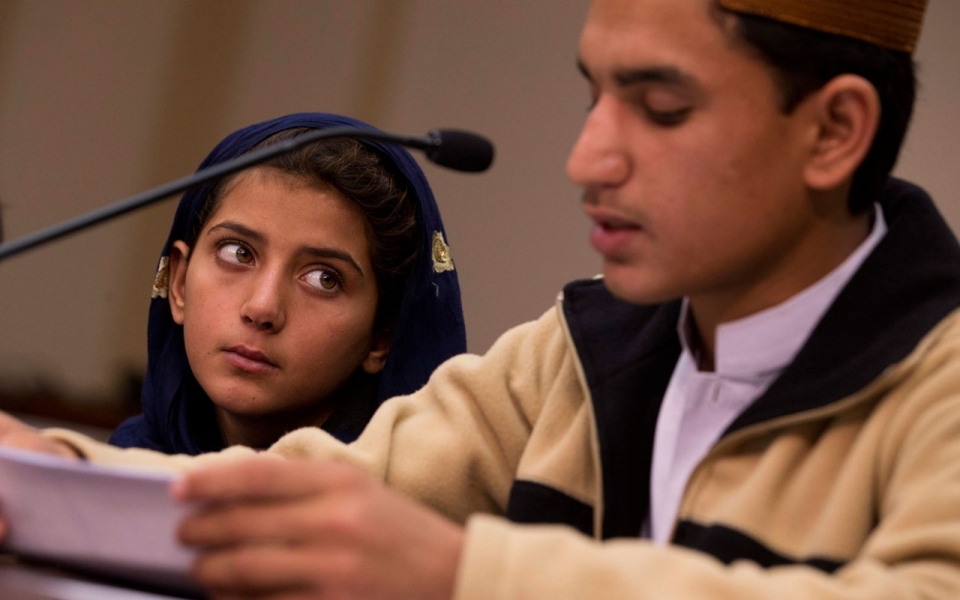The Internet lit up recently with the announcement that Amazon is testing a new system that will allow the giant retailer to deliver some order within thirty minutes. Like many, I watched the video and then followed the inevitable memes linking the plan to Terminator, the Hunger Games and dystopia in general. This is all fun and games up to a point.
The ugly reality is, though, that drones — and the dystopia they are linked to — are all too real and all ready with us. As Eugene Robinson wrote in the December 2 Washington Post, “U.S. drone attacks in Afghanistan, Pakistan and other countries may be militarily effective, but they are killing innocent civilians in a way that is obscene and immoral.” Ignoring that reality, he wrote, “makes Americans complicit in murder.”
In class today, I reminded my students that President Obama’s first act as chief executive was to sign an order banning torture. He has ended “Don’t Ask, Don’t tell,” put federal support behind gay marriage, championed health care reform (health care is a human right) and enforced the “red line” in Syria that has led to some progress on the use of chemical weapons there (less successful, though, on ending the raging conflict). However, on the negative side, he has yet to close Guantánamo. Perhaps the signature failure of his tenure in terms of human rights will be what Robinson calls the expansion in the use of drones. His version of the terror war looks a lot like a campaign of assassination.”
Robinson cites an investigation by the nonpartisan New America Foundation, which estimates that drone strikes under both presidents have killed between 258 and 307 civilians in Pakistan, and between 66 and 68 in Yemen. In a disturbing number of cases, the victims are non-combatants, including children.
Just last month, an Pakistani father with his two children testified before the US congress about surviving a US drone attack. Apparently, only 4 congresspeople even showed up for the hearing. Rafiq ur Rehman is a primary school teacher from North Waziristan, Pakistan. The strike killed his 67-year-old mother, known in the region as a midwife. “Nobody has ever told me why my mother was targeted that day,” Rehman told the congressional representatives. “All media reported three, four, five militants were killed. But only one person was killed that day. A mom, grandma, a midwife.”
As Rehman’s son said, “I no longer like blue skies, because that’s when the drones come.”
Drone strikes are popular in the US because they mean that our own soldiers are kept from harm’s way. For these families, a remote-controlled war is preferably to the risk of a loved one never coming home, an understandable perspective.
Yet we can’t forget that real people are harmed by these strikes, many of them as innocent as the man and his family who collect an Amazon drone delivery. How horrible would that promo video look if, instead of a skate tool, the drone delivered an explosion? Or if that customer, instead of expressing joy, felt only the wrenching grief of losing a child?

